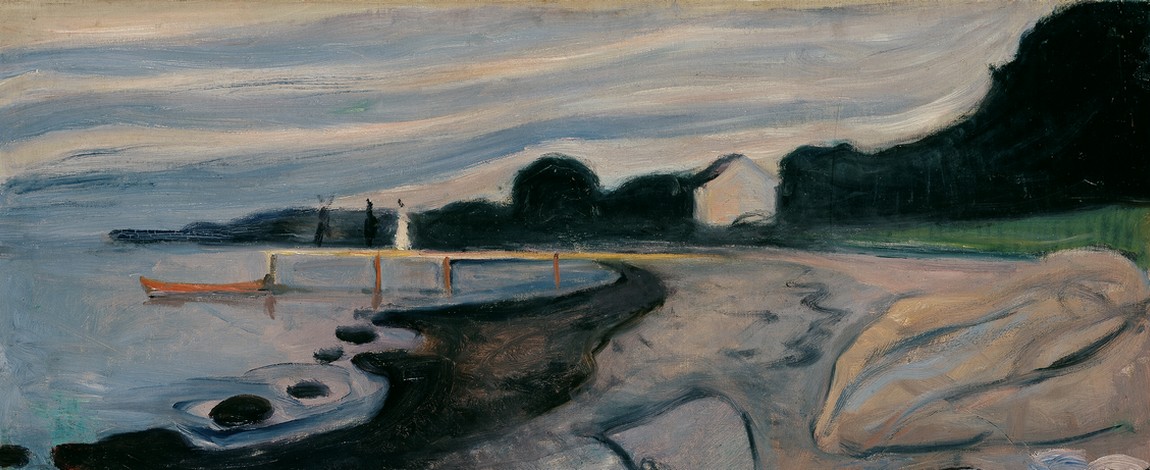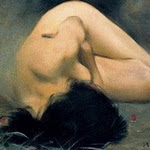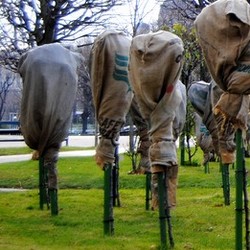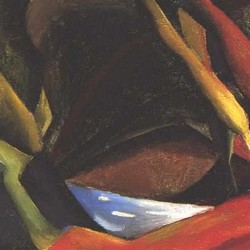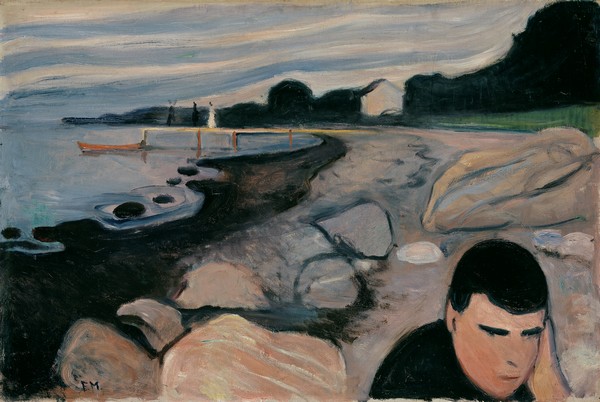
The Hollywooder Liederbuch by Hanns Eisler, probably his second best-known work, tells about his escape from Nazi Germany and exile to the United States, and he often does so with the verses of his friend Bertolt Brecht, with whom he shared fate. After the war ended, some exiled German artists and intellectuals returned home, others preferred to stay in the host country; Eisler, however, left in an unfortunate way: he went into another exile.
In 1946, the composer was reported to the House Committee on Un-American Activities, which always had a focus on Hollywood people. He was accused of being the head of Russian intelligence in the United States, and was referred to as the "Karl Marx of music". Charles Chaplin (who would also be persecuted, and would eventually leave the country), Leonard Bernstein, Igor Stravinsky and Aaron Copland were some of the personalities who supported Eisler as much as he could. It was a vain attempt. In March 1948, Eisler and his wife were deported, in the middle of a support campaign that included voices like Thomas Mann and Pablo Picasso. The composer made a statement at the airport, and he ended up saying, "I feel heartbroken over being driven out of this beautiful country in this ridiculous way". A few months earlier, Brecht had fled the country, also facing government repression.
Back inn Europe, Eisler spent some time in Vienna, before settling in East Berlin. He devoted himself to teaching and composition (that's when he wrote his best-known work, the anthem of the German Democratic Republic). He was allowed some freedom to travel, but at the same time he was questioned and investigated by the authorities of the GDR. It was a tough time, during which depressions and other health problems were usual.
Between 1953 and 1954 he composed Sieben Lieder über Liebe [Seven songs about love], with texts by different poets. Nine years ago, we listened to the fourth, Verfehlte Liebe, with a poem by Heinrich Heine. For this week, I propose the last one, Und endlich [And at last] with text by Peter Altenberg, a writer recognized above all for his short prose and member of the Jung Wien (Hugo von Hoffmannsthal or Stefan Zweig were also members of this group). Und endlich stirbt die Sehnsucht doch [And at last longing dies] is the last poem in Cyclus: Gedichte an Ljuba [Cicle: Poems for Ljuba], included in the volume Was der Tag mir zuträgt [What the day brings], written in 1903 and published posthumously in 1932. As you will notice, the text is as sad as Verfehlte Liebe's.
You might be familiar with Peter Altenberg's name in the context of the Lieder. He is the poet of the Altenberg-Lieder by Alban Berg (1913), one of the works that were first performed during that concert at the Musikverein in Vienna known as Skandalkonzert (as far as the chronicles explain, that scandal left the premiere of Quartet no.2 by Schönberg in a mere anecdote). But I'll leave that for another day.
For now, we will listen to Und endlich, by Hanns Eisler, performed by Holger Falk and Steffen Schleiermacher, a song that is so discrete and intimate that it may go unnoticed during a medium-intensity program. Just look at the character indication of the score: “Moderately slow (with maximum discretion)”. I hope you like it.
Wie Blüten sterben im Kellerloch,
Die Täglich auf ein bißchen Sonne warten.
Wie Thiere sterben, die man lieblos hält,
Und alles Unbetreute in der Welt!
Man fragt nicht mehr: “Wo wird sie sein!--?!?“
Ruhig erwacht man, ruhig schläft man ein.
Wie in verwehte Jugendtage blickst du zurück
Und irgendgemand sagt dir leise: „'s ist dein Glück!“
Da denkt man, daß es vielleicht wirklich so ist,
Wundert sich still, daß man doch nicht froh ist--
as flowers die in the cellar,
waiting daily for a little bit of sunlight,
as animals die if one keeps them without love,
and as do all the neglected people in the world!
You no longer ask: "Where can it be found?"
Calmly do you awaken, calmly do you fall asleep.
As you look back on the vanished days of your youth,
and someone says to you softly: "This is your good fortune!" ,
then you think that perhaps it really is true;
yet silently you wonder why you are still not happy.
(translation by Emily Ezust)


